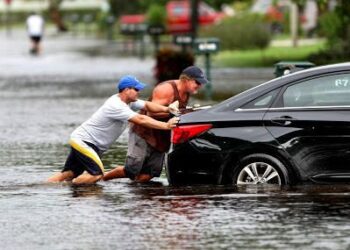The impact of the Covid-19 pandemic has given rise to many disputes related to commercial contracts due to one party’s delay or failure to fulfill its obligations, raising the legal issue of force majeure events
Legal grounds:
- Civil Code 2015.
Only when the Covid-19 epidemic event occurred, many people seriously paid attention to the issues related to the force majeure event. Many questions are raised such as: Is covid-19 a force majeure event? What are the responsibilities of each party when affected by the covid-19 event? Will affected businesses be exempted from workshop rent?
Those are the issues that emerge when the covid-19 event occurs. However, few people care about how the contract should be drafted so that it can be useful when a force majeure event occurs.
-
Force majeure events and matters to be noted
A basic principle of civil law is: the parties to a contract must respect and abide by the agreements entered into.
However, reality is not always what people expect. In many cases, the context at the time of contract performance has changed compared to the time of signing the contract, but if that future context has occurred at the time of signing, the parties may not be able to enter into the contract or enter with other contents.
Such a changing context could affect one or both parties to the contract, making it impossible for them to properly perform their obligations under the agreement. Usually the parties will actively negotiate to adjust the contract to fit the new context. However, in many cases, the parties have to resort to courts and arbitration to resolve disputes. At that time, the changing context is considered whether it is a force majeure event or not?
Pursuant to Clause 1, Article 156 of the 2015 Civil Code, force majeure events are specified as follows:
A force majeure event is an event that occurs objectively, which cannot be foreseen and cannot be remedied even though all necessary and permissible measures have been applied.
According to the above provision, an event is considered as force majeure when there are all three factors:
- Events occur objectively;
- The parties could not foresee the occurrence of this event at the time of signing the contract;
- and the consequences of the event are irreparable even though the breaching party or the parties have taken all measures within their power
Example: The covid-19 epidemic was only discovered in January 2020 and reported by the media. If the contract was signed before this time and its consequences during the contract performance in 2020 cannot be remedied, the covid-19 epidemic can be considered in this case as a force majeure event. If the contract is signed in 2021, it is difficult to consider the covid-19 epidemic as a force majeure event.
In addition, the consideration of whether an event occurs is force majeure or not depends on other factors of the transaction such as: What is the object of the contract? What is the breached obligation? What efforts have the parties made to fulfill their obligations?
-
Drafting terms of force majeure events
As mentioned above, to determine whether an event is force majeure or not, many factors need to be considered. Therefore, if at the time of drafting a contract, if the parties can anticipate possible situations in the course of contract performance based on their knowledge of: industry characteristics, goods and services transactions, market factors, the role of other third parties when performing the contract, etc., when the risk of certain events occurs, it will be more convenient to resolve disputes.
There are usually 3 approaches to drafting force majeure clauses as follows:
First: Specifying general criteria to determine what is a force majeure event.
This method is similar to the provisions in Clause 1, Article 156 of the 2015 Civil Code.
- The application of Clause 1, Article 156 of the 2015 Civil Code is the default when the contract is applied under the Vietnamese legal system. It should be noted that, although the parties agree to remove some criterias for determining force majeure events, Clause 1, Article 156 of the 2015 Civil Code still has priority to apply.
- The limitation of this drafting option is that it requires a certain understanding and in-depth assessment to conclude whether an event is force majeure or not?
Second: List specifically which events are considered force majeure events.
- Normally, current contracts stipulate force majeure events which can be: natural disasters, enemy sabotage, fires, epidemics, strikes, labor strikes, policy changes, Government decisions government, acts of state agencies, etc.
- The limitation of this editing option is that it is not possible to list all possible future events. Therefore, when drafting a contract, the phrase “including but not limited to…” is often used to expand on other facts that are not listed by the parties.
Third: Combine the two above-mentioned drafting methods, both stating the general criteria for determining force majeure events and listing specific events as force majeure.
- The parties may also list more special cases. For example, in case the price of input materials increases/decreases too much compared to the general price at the time of signing the contract.
- This option is more efficient than the above two approaches. But it is not possible to overcome all the limitations mentioned above.
-
Drafting settlement terms when force majeure events occur
In addition to determining which events are considered force majeure, the parties should also have additional provisions to deal with in case a force majeure event occurs. Specifically, there should be some of the following:
- How is the party affected by the force majeure event exempt from liability? Full or partial exemption?
- When a force majeure event occurs, what must the affected party do? How to notify?
- How is the breaching party responsible to limit the damage to the other party?
- In case the force majeure event lasts so long, what rights/obligations do the parties have?






